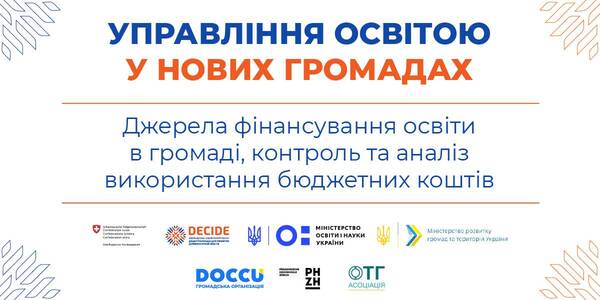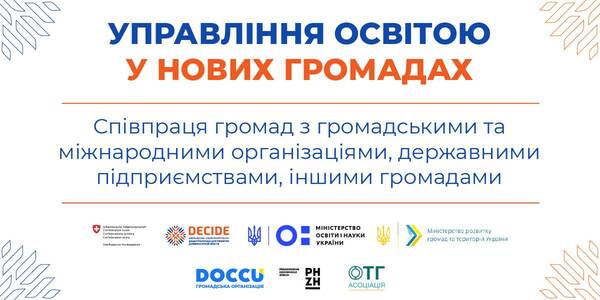Educational Management on the Ground
Within decentralisation, the state educational subvention covers, first and foremost, expenditures for providing the teaching component of the educational process: salaries of employees of educational institutions, textbooks, teacher training, etc.
State authorities and hromadas have to provide the necessary conditions for teaching and upbringing of children of junior school age at the place of residence, in particular in villages.
New opportunities are created for expanding state-public partnership in education through new approaches for co-financing and management of educational institutions.
In the process of decentralisation and modernisation of education, the impact of local hromadas on the formation of the local educational policy, taking into account local cultural features and labour market peculiarities, is based on the state educational policy. The proper organisation of functioning of educational institutions and effective management of local educational institutions are a key factor in the success of the reforms and provision of high-quality educational services to citizens.
 DECIDE
Як провести конкурс на посаду директора школи? Не панікуємо – є план у 8 кроків
DECIDE
Як провести конкурс на посаду директора школи? Не панікуємо – є план у 8 кроків
 education
Джерела фінансування освіти в громаді, контроль та аналіз використання бюджетних коштів
education
Джерела фінансування освіти в громаді, контроль та аналіз використання бюджетних коштів
 Донецька область
Управління освітою у військово-цивільних адміністраціях. Що не так із ВЦА?
Донецька область
Управління освітою у військово-цивільних адміністраціях. Що не так із ВЦА?
 education
Оскарження публічних закупівель в контексті організації харчування у закладах освіти
education
Оскарження публічних закупівель в контексті організації харчування у закладах освіти


